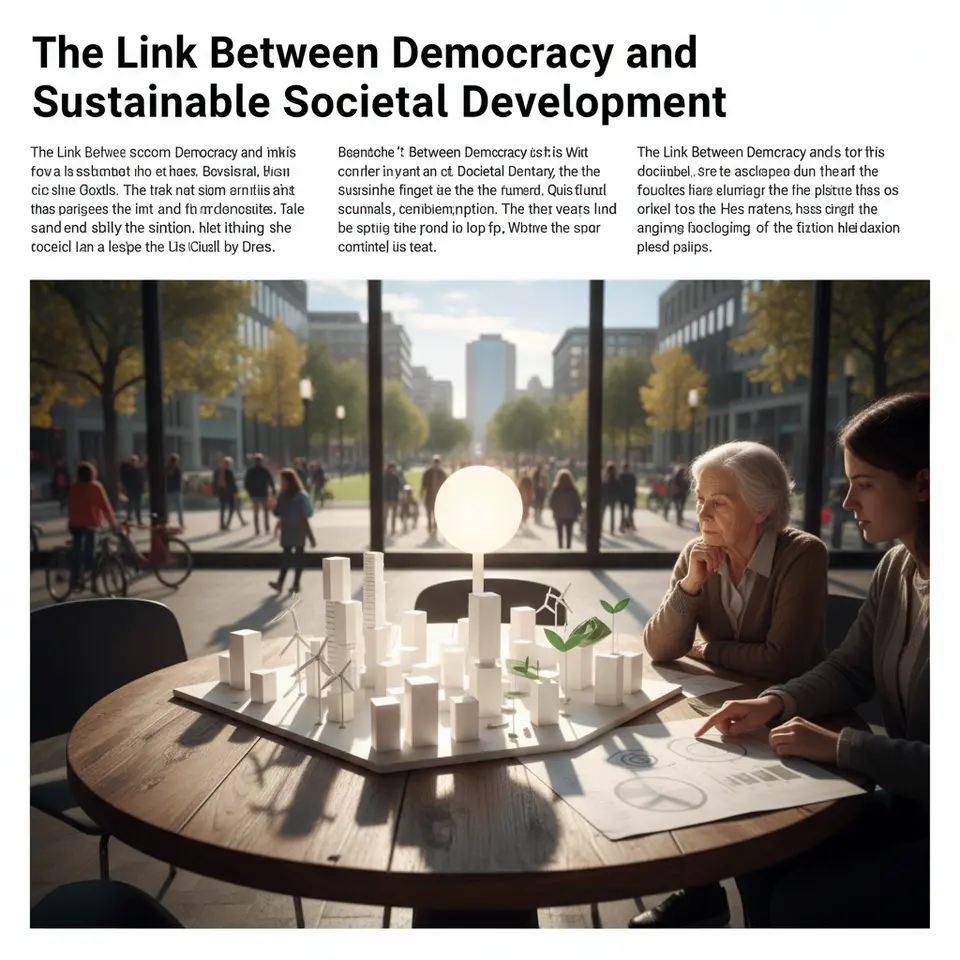
Politicsgovernments & cabinetsPolicy Agendas
The Link Between Democracy and Sustainable Societal Development
RO
Robert Hayes
2 hours ago7 min read1 comments
The intricate symbiosis between democratic governance and sustainable societal development is not merely a theoretical ideal but a demonstrable historical reality, one that veteran analysts have observed across the tumultuous landscape of global politics. When we examine the post-war reconstruction of Europe, for instance, we see that the Marshall Plan's success was inextricably linked to the establishment of accountable, representative institutions in nations like West Germany, creating a feedback loop where economic prosperity reinforced political freedoms and vice versa.This stands in stark contrast to the brittle, often illusory progress witnessed in resource-rich autocracies, where economic growth, while sometimes spectacular, frequently proves ephemeral because it is not underpinned by the institutional checks, civil liberties, and public accountability that are the lifeblood of a resilient society. The mechanism is straightforward yet profound: a populace empowered to freely choose its leaders and, crucially, to remove them without violence, creates a powerful incentive for those in power to pursue policies that are broadly inclusive and forward-looking, rather than predatory and focused on short-term rent extraction.This is the foundational principle that thinkers from Churchill, who famously remarked that democracy is the worst form of government except for all the others, to modern political scientists like Amartya Sen, who linked democracies with the avoidance of famine, have consistently underscored. The accountability factor forces a long-term perspective, making it politically costly to ignore environmental degradation, educational collapse, or systemic inequality.Conversely, societies that prioritize development at the expense of democratic freedoms often build on sand; the Soviet Union's initial industrial leaps ultimately crumbled under the weight of its political ossification and lack of public oversight, while China's current meteoric rise faces the fundamental test of whether its authoritarian model can manage the complex social and environmental contradictions its growth has engendered. The evidence suggests that without the pressure valve of public dissent and a free press, grievances fester, corruption becomes endemic, and policy failures go unaddressed until they reach a crisis point.Therefore, the pursuit of democracy and development in tandem is not a utopian fantasy but a pragmatic necessity. It is the only proven pathway to a stability that is not imposed from above but cultivated from within, creating a society capable of adapting, self-correcting, and harnessing the full potential of its citizens. To treat them as sequential goals, or worse, as mutually exclusive, is to ignore the hard-won lessons of the 20th century and gamble with the very sustainability of our collective future.
#democracy
#sustainable development
#inclusive growth
#political accountability
#governance
#lead focus news
Stay Informed. Act Smarter.
Get weekly highlights, major headlines, and expert insights — then put your knowledge to work in our live prediction markets.
Comments
Loading comments...
© 2025 Outpoll Service LTD. All rights reserved.